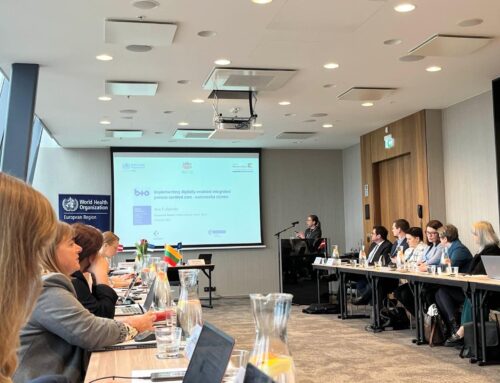 Esteban Manuel Keenoy, Director of Kronikgune until January 2023, now Biosistemak Health Systems Research Institute, is one of the authors of this publication.
Esteban Manuel Keenoy, Director of Kronikgune until January 2023, now Biosistemak Health Systems Research Institute, is one of the authors of this publication.
The World Health Organization (WHO) has published a policy paper with the analysis and policy recommendations on population health management in Primary Care with a proactive approach to improving people’s health and well-being
This work is framed in the context of population health management where Primary Care (PC) can play a key role in strengthening the system by providing an evidence-based and people-centred proactive approach to managing population health and well-being. In this sense, defining the population and creating subgroups with similar characteristics and needs can allow healthcare providers to move from a one-size-fits-all approach to defining specific interventions, and providing personalized care taking into account the needs of different groups and individuals. This vision takes into account the social determinants of health and the psychosocial needs of individuals, helping primary care providers to be able to take a holistic approach that includes health inequalities at the community level.
This publication identifies key success factors at system, organizational and clinical levels to enable population health management in primary care. It includes 12 country examples from the WHO European Region showing how population health management is being used in PC. The publication provides a set of 16 policy actions to help health providers move towards a population health management approach that is categorized according to the levers of the WHO Operational Framework for Primary Care.
Download the report, Population health management in primary health care: a proactive approach to improving health and well-being: primary health care policy paper series, by clicking on the following link: https://www.who.int/europe/publications/i/item/WHO-EURO-2023-7497-47264-69316





